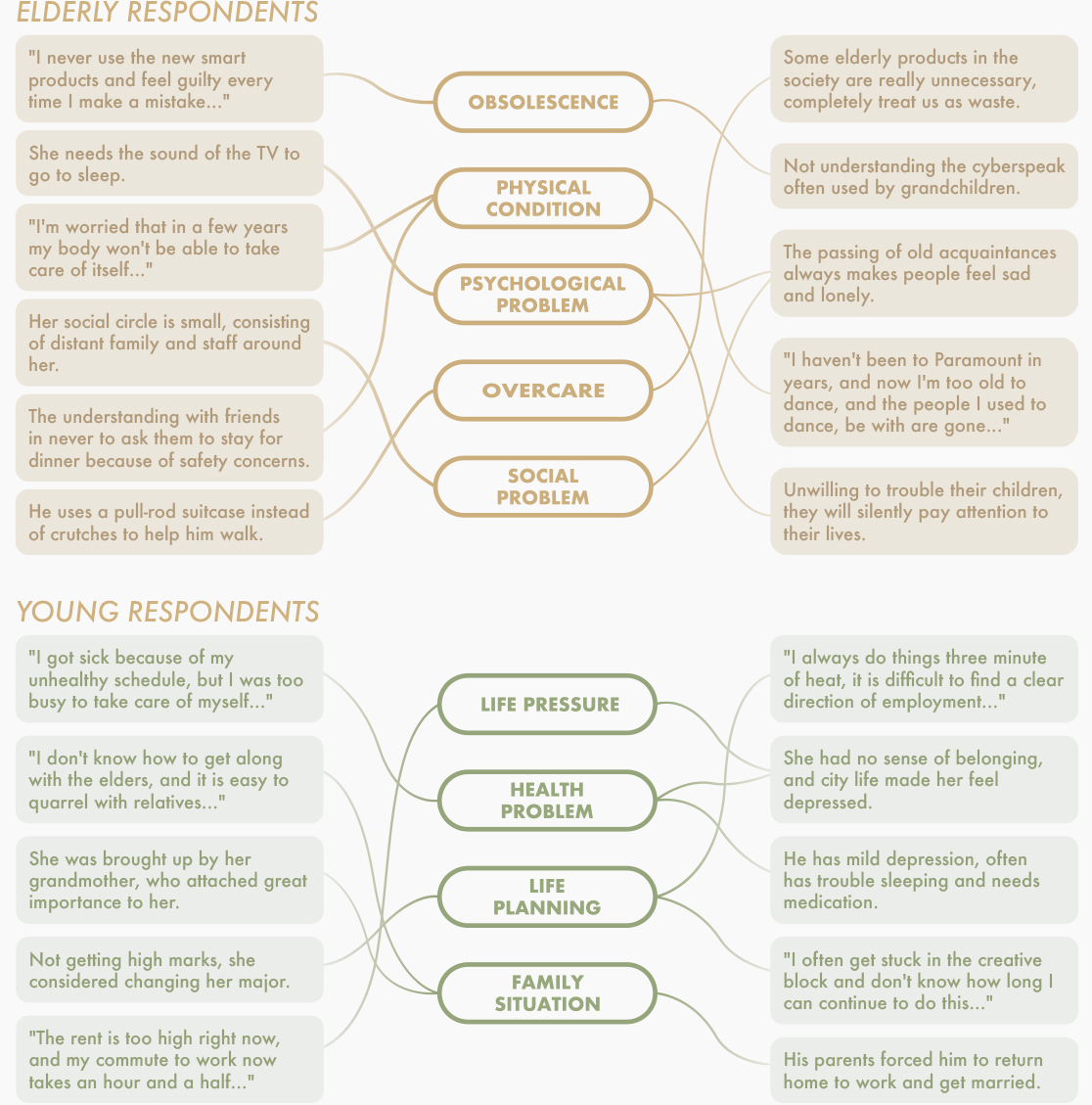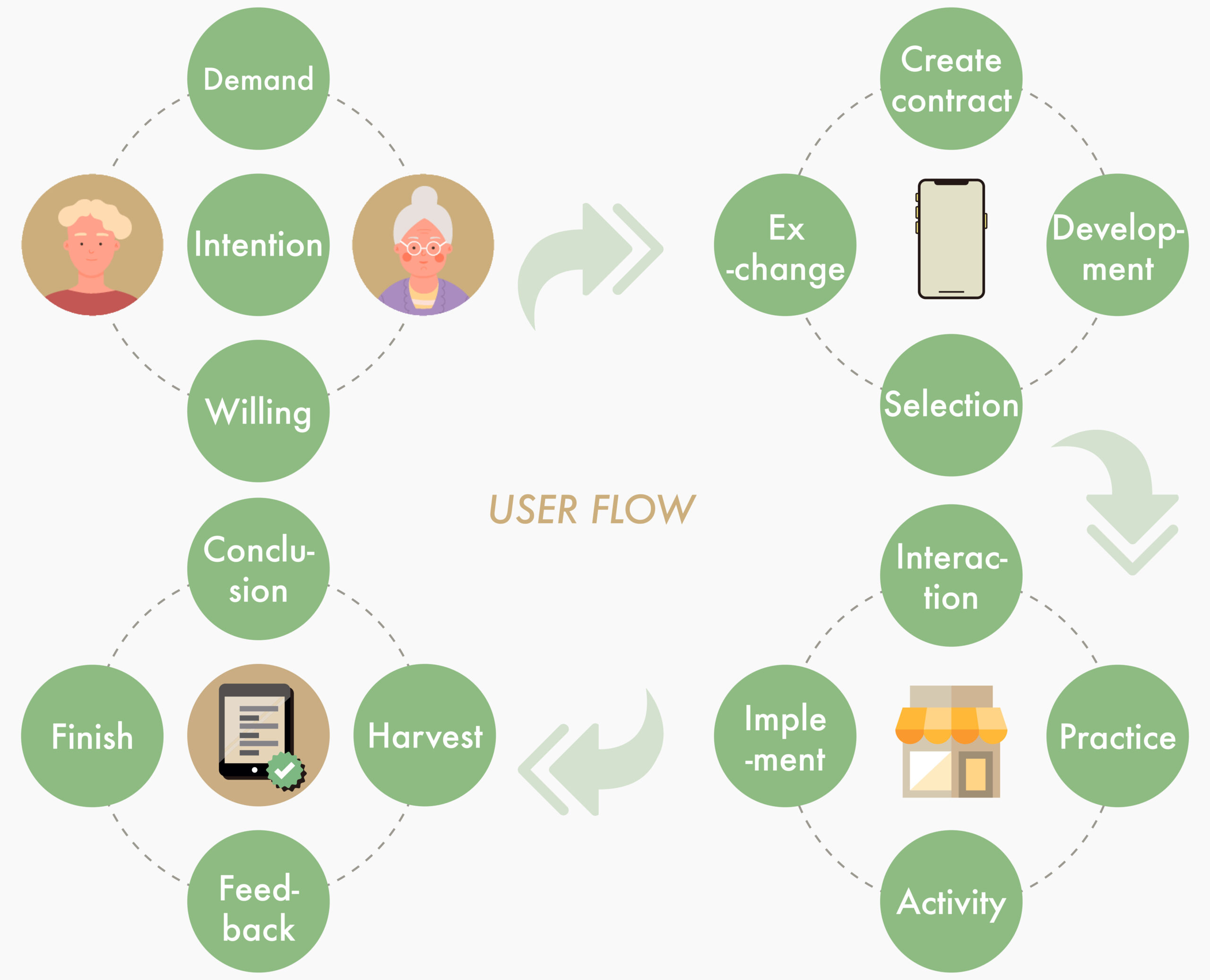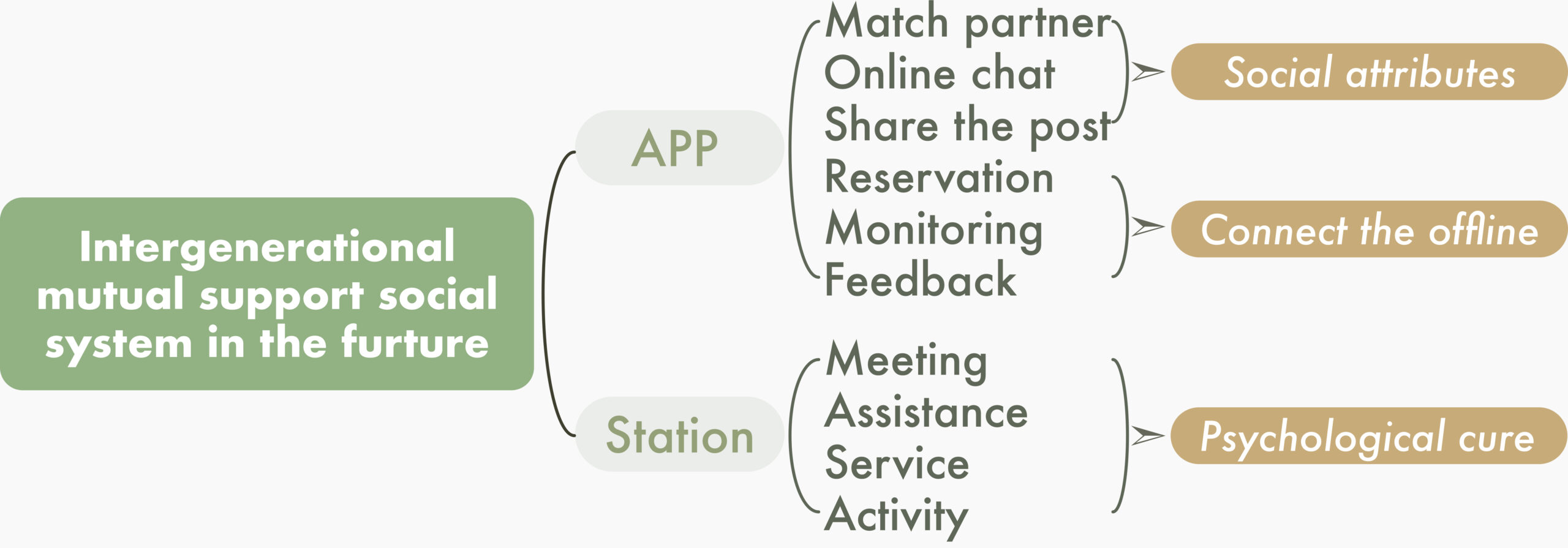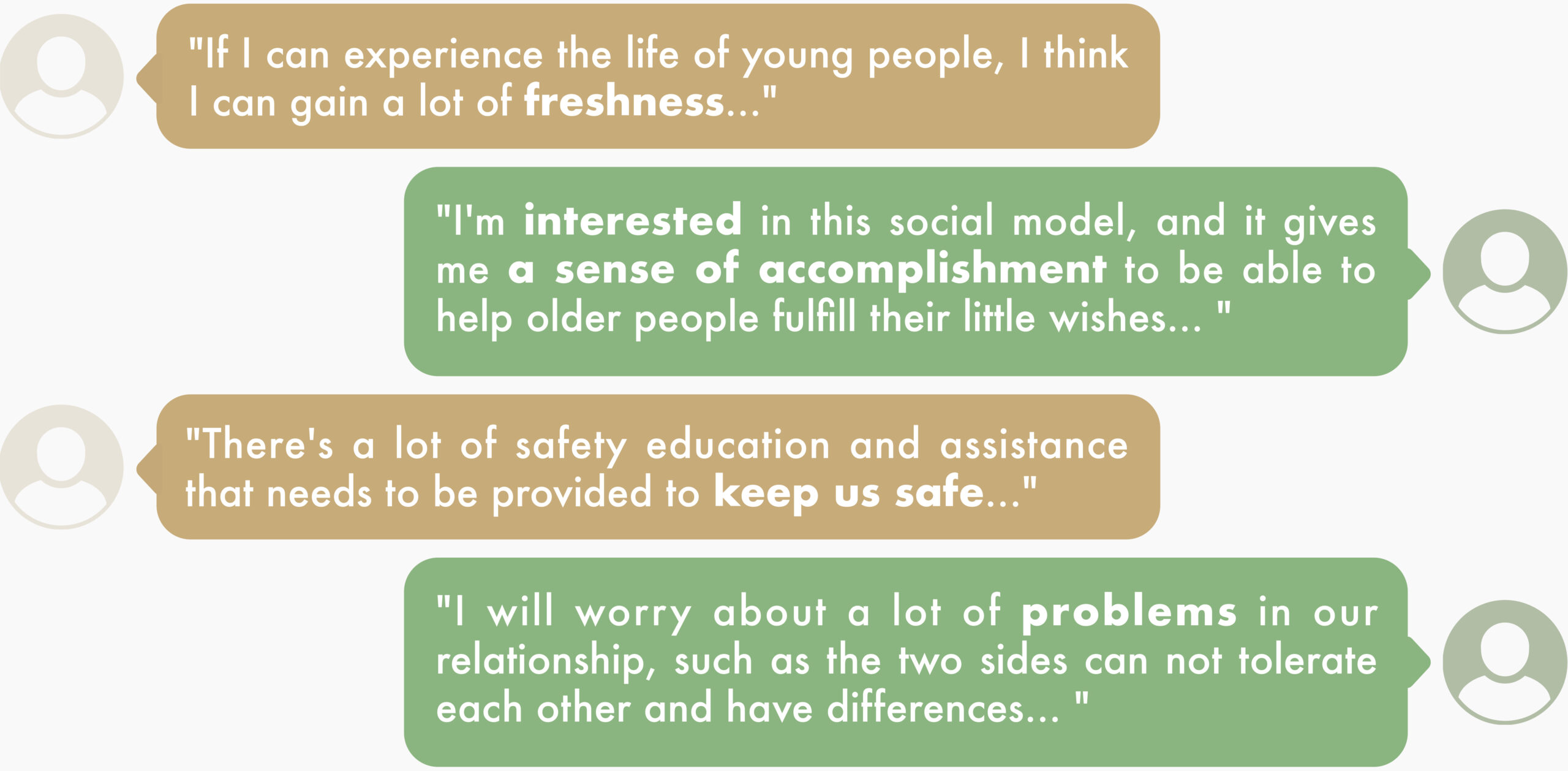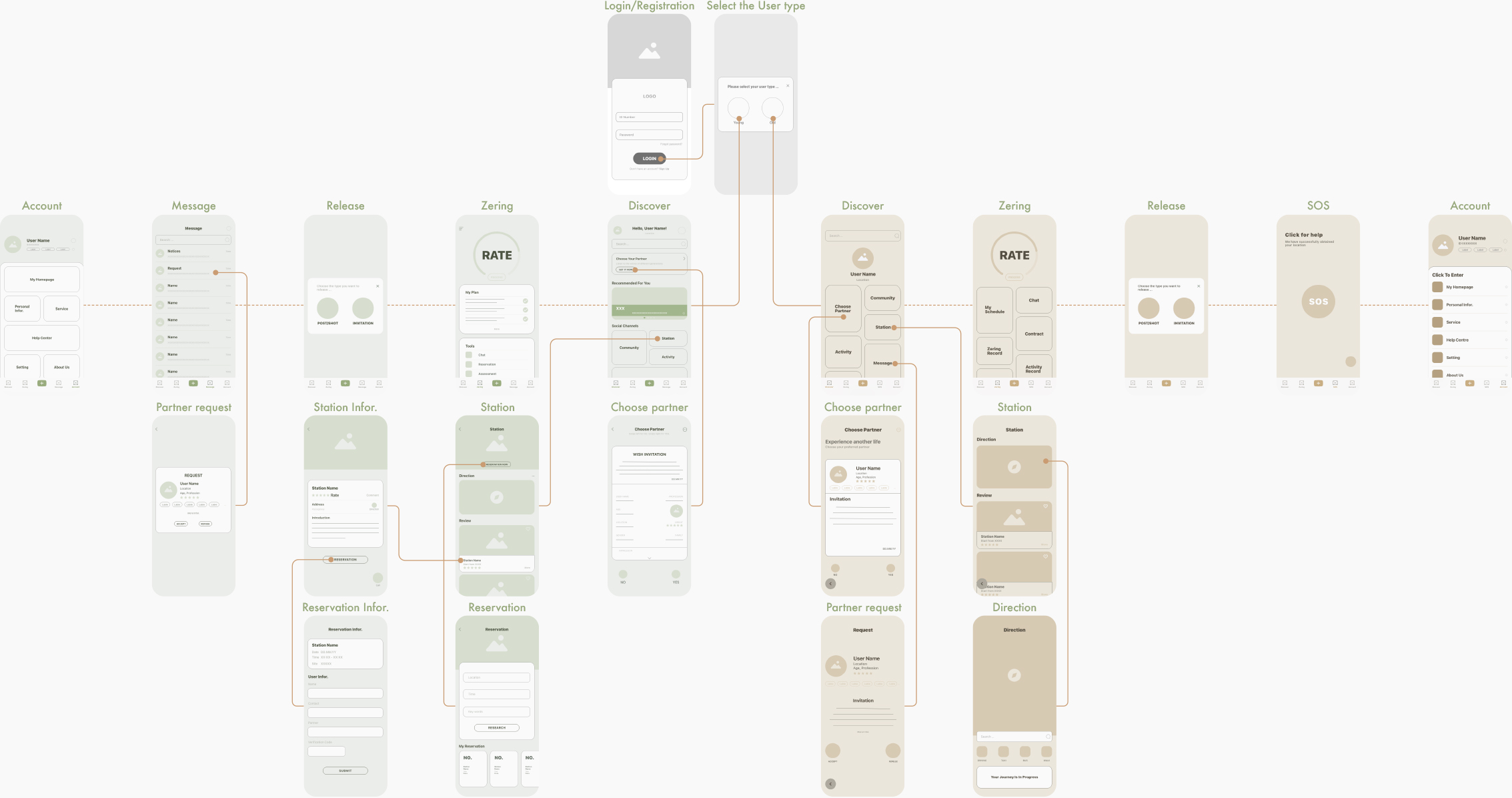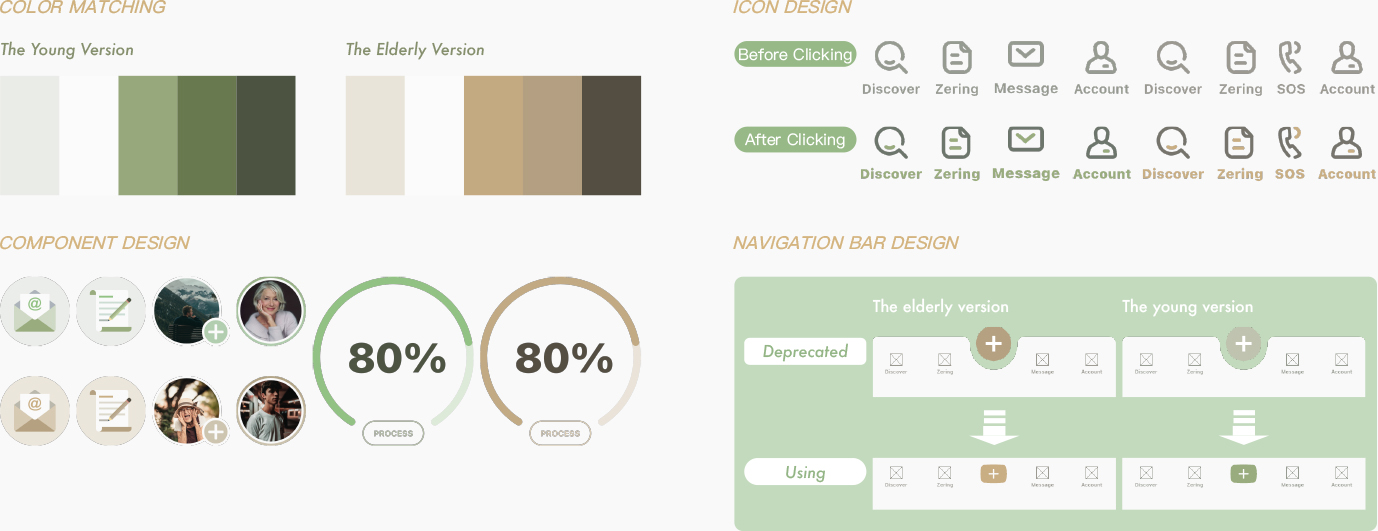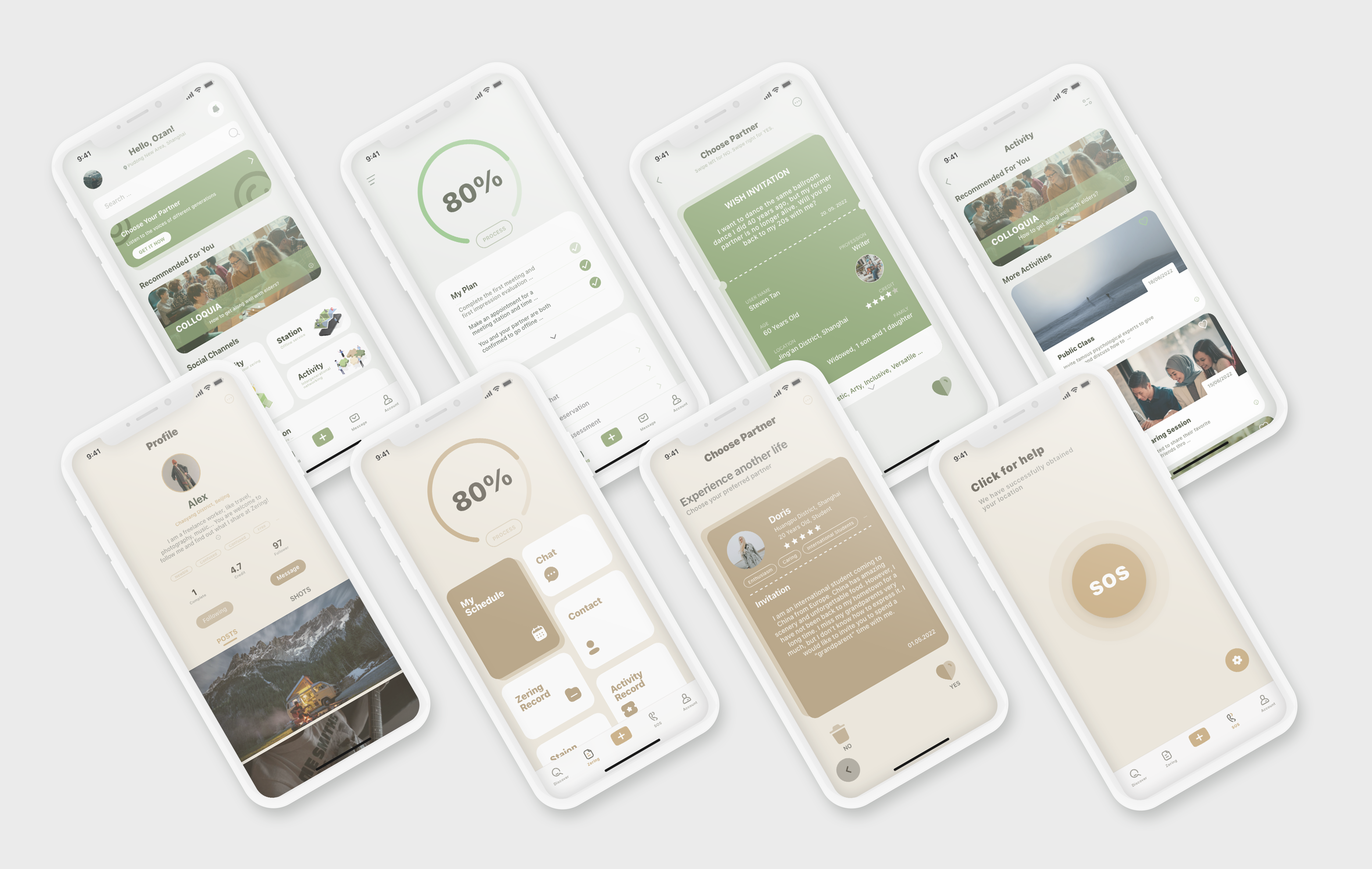Zering
A companionship-focused social platform that bridges generational gaps — enabling meaningful connections between young and older users through authentic interaction, and fostering a warm, inclusive circle of belonging.
May 2022|Shanghai · China
Introduction|
As China enters an era of deep aging, “empty nesting” has become an unavoidable reality for a growing number of elderly individuals. At the same time, younger generations are swept up in the tide of rapid urbanization and high-pressure living, increasingly disconnected from their families and the intergenerational bonds that once grounded them. The ties between generations are becoming thinner, more fragmented—and, at times, completely silent.
Our research reveals that in the structure of modern society, the elderly and the young are often confined to two separate social spheres: the elderly are framed as “receivers of care,” while the young are expected to act as “providers of responsibility.” In such a structurally imbalanced setting, authentic emotional connection becomes difficult to initiate.
Zering was born from this reality. It seeks to dismantle the one-way caregiving model and instead build a more reciprocal, flexible, and sustainable intergenerational system—supported by digital tools and community infrastructure—that reawakens empathy, mutual understanding, and everyday companionship.
Zering believes that intergenerational relationships are not broken by default—they can be reconnected.
This project is not merely a service for the elderly; it is a deeper exploration of how we live together.
Design Keywords|Service Design / Intergenerational Connection / Intergenerational Empathy / Mutual Empowerment / Empty-nest Families / Urban Youth Mobility / Social Innovation / Design for Public Care / Role Reframing
Project Background|
Social Trends & Challenges|
Aging Population: Over 14% of China’s population is now aged 65 or older. The phenomenon of “empty-nest households” is becoming increasingly common, and living alone has become the norm for many elderly individuals.
Intergenerational Disconnection: Urban mobility has caused younger generations to become physically and emotionally distanced from their families, resulting in a significant decline in intergenerational interaction.
Emotional Isolation: Although both older and younger people express a strong desire for emotional support, they often lack natural, shared spaces or mechanisms to initiate meaningful connection.
Problem Summary|
Elderly: Shrinking social circles, significant digital divide, and a declining sense of self-worth.
Younger Generation: Increasing emotional stress, heightened responsibility anxiety, and a lack of deep, authentic connections.
User Research|
Persona|
Through one-on-one interviews and behavioral observation, we uncovered the real needs and barriers faced by both elderly and young users.
Note: To protect participants’ privacy, no real personal photos are shown on this site. Instead, we focus on presenting key interview quotes and insight summaries.Pain Point Analysis|
Download of Project Documentation|
Zering Comms Zering
Want a deeper look into Zering’s design process and implementation details?
Feel free to download the full project communications package below.
End|
Zering is not a service designed solely for the elderly, nor is it just a tool for solving the “lack of companionship.”
It is, rather, an invitation—to break the silence between generations, to reimagine the structure of relationships, and to co-create a gentler, more sustainable way of connecting.
In a world that moves at an ever-accelerating pace, I believe that understanding is a form of connection, companionship is a form of strength, and design can be a bridge between the subtle yet genuine emotions shared among people.
Zering is not the end— It is the beginning of a new way to rebuild relationships.
If this project resonated with you, or you’d like to collaborate — I’d love to hear from you.
📧 Email: [email protected]
📸 Instagram: har_rison0525



